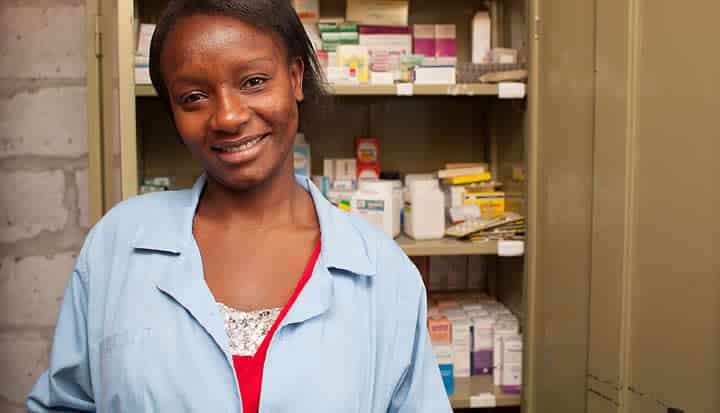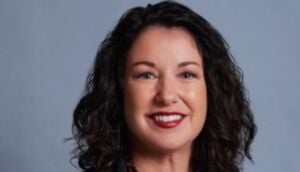Access Afya is bringing a chain of “ultra-mini-clinics” to slums in Kenya. The mini-clinics are neighborhood kiosks staffed with qualified medical professionals and equipped with the latest health technologies and diagnostics.
Access Afya’s pilot mini-clinic is designed to encourage patients to seek timely preventative care and early diagnosis of illness because the clinics are more convenient than public health clinics, which are often located a long distances away and have long wait times. The organization’s mission is to launch a chain of mini-clinics that, with the trust of communities, “bring a holistic healthcare model directly to the doorstep of the people who need it the most.”
Poverty and Inadequate Health Systems
At least 49.5 percent of Kenyans live in poverty. People who are poor and fall ill must spend time and transit money to get to a public clinic where they wait several hours for treatment.
Slum residents who cannot bear these costs often self-diagnose and then purchase drugs from an unregulated chemist. “Chemists are rarely staffed by health professionals, nor do they have training or tests to give an accurate diagnosis,” according to Access Afya.
Unregulated chemists can do more harm than good, often selling expired or stolen drugs and insufficient doses of antibiotics that ultimately make illnesses worse.
Kenya’s health systems are inadequate and unevenly distributed. There are only 4,500 physicians in Kenya, and only 1,000 work in the public sector. “Charitable programs exist, but cannot reach the millions living in poverty and are heavily subsidized,” according to Access Afya.
“Other health enterprises in Kenya do not target the ultra-poor, or they focus only on specific needs, such as maternity or HIV/AIDS.”
Convenience and Comprehensive Outpatient Care
Access Afya’s goal is to fill this gap by making comprehensive outpatient health services convenient to access. Each clinic has a registered nurse on site, supported by electronic health systems to manage patient files, medical stocks, and communications.
Although they are only the size of a kiosk, mini-clinics contain a consultation room, mini-lab, and a dispensary to fill prescriptions right on site. The clinic is open every day for ten hours, and patients pay small fees for each service, making the model self-sustaining.
“Our partnership with the public sector, from licensing, to reporting, to receiving free supplies, makes the model more feasible and scalable,” according to Access Afya.
Access Afya also believes that the presence of multiple mini-clinics in a community will encourage more health-seeking behaviors from individuals, saying that “patients are encouraged to have earlier, more frequent conversations about their health through community marketing and convenient proximity.” Health awareness and health-seeking behaviors are key to preventing more serious health problems down the line.
Leveraging Technology to Increase Social Impact
This business model also taps into efficiencies gained from information and mobile technologies that manage patient information and conduct community outreach and education. “Nairobi is emerging as Africa’s Silicon Savannah, giving us many organizations and individuals to partner on tech innovations,” according to Access Afya.
“Mobile penetration is high, meaning our text message communication strategies are feasible here. We also have strong local support networks, and a solid knowledge of our target market through our growing electronic database of our patients’ demographics, symptoms, treatments and also process documents from the pilot.”
Access Afya has served 400 residents of Mukuru, a sprawling Nairobi slum, during the four months since it launched its pilot mini-clinic. Many more customers have purchased supplies over the counter.
“Patient feedback is incredibly positive,” according to Access Afya. “The clinic performed more than 100 consultations, made 25 family planning visits, dressed 16 wounds, and ran 34 tests in the first ten weeks.
“Health talks are an essential piece of our marketing strategy that transfer information to targeted groups such as women-living-with-HIV support networks, savings groups, and secondary schools. We held our first large outreach event—a deworming campaign—and had 176 children come to the clinic in two days.”
Scaling Up to Transform Health Systems
Access Afya’s pilot clinic is able to cover half of its operating costs through revenue generation, and the organization expects that each mini-clinic will take one year to break even. Access Afya aims to be operating 15 mini-clinics in informal urban settlements, and one rural pilot, by the end of 2015, which will allow the entire organization to become self-sustaining through economies of scale.
While 90 percent of its funding comes from social investment capital, its strategy is to seek philanthropic funding in order to “test new ideas, such as marketing primary care memberships, integrating mobile money savings products, and expanding to a rural pilot.”
Scaling up to transform Kenya’s health systems has always been a long-term goal for Access Afya. “We are planning each element of the organization for scale, from recruitment and hiring criteria, to training plans, to clinical and operational protocols,” according to the organization.
“Technology is the backbone of this vision, as all records are already managed electronically. Smart health systems will increase efficiency through saving space and reducing repetitive data collection, and improve outcomes through diagnostic protocols and treatment reminders.
“As we expand, small positive margins from each mini-clinic will contribute to operational overheads, making the model self-sustaining at scale.”
This story is part of a series about innovative business models that are solving the systemic health problems of different markets around the world. This initiative was selected as a finalist in the Transforming Health Systems: Gamechanging Business Models competition, launched by Ashoka Changemakers and Boehringer Ingelheim. Visit the competition page to vote for your favorite finalist before June 18.










